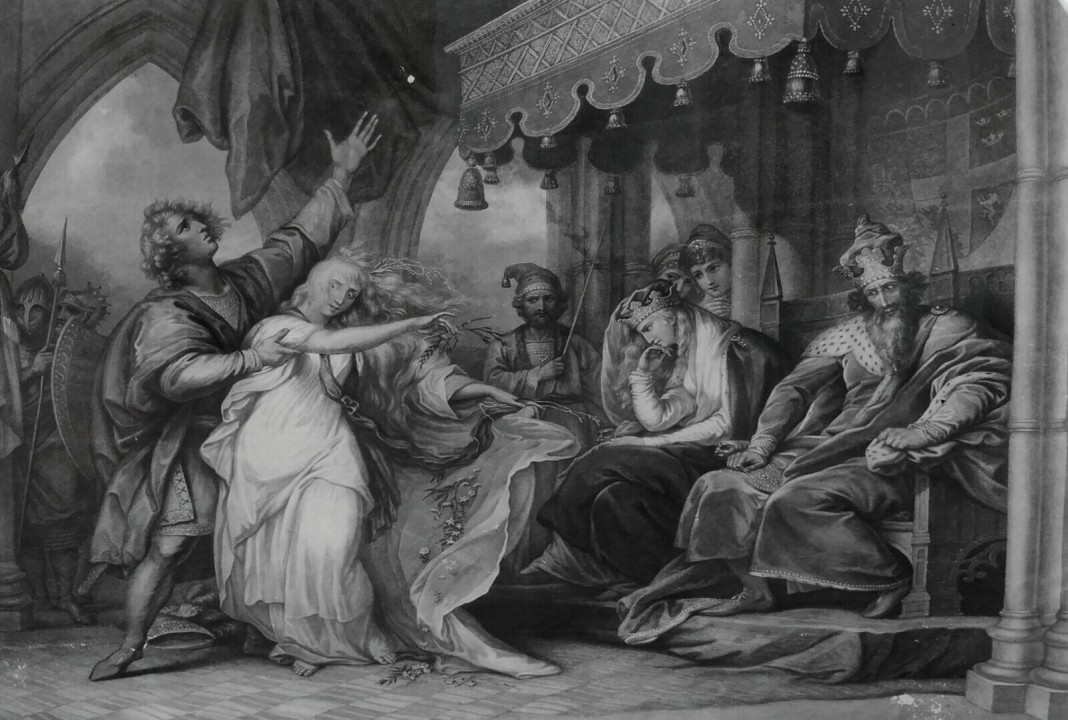
On playing Laertes
So,
I'm going to have to cry onstage.
Since we've wrapped our performances of All's Well That Ends Well, I've been hard at work preparing for my role as Laertes in the upcoming Shawnigan Players production of Hamlet going up at the Duncan Showroom in late October. And now that I've given my best shot at comedic acting, this play will give me a chance to try tragedy.
I thought I remembered Hamlet pretty well from high school English, but immersing yourself in a particular character's headspace and spending months marinating in the text gives you a much more profound sense of the story. Laertes only has six appearances in our show, but has some of the most impactful lines and devastating scenes. He is briefly introduced in the beginning, then disappears for the majority of the play before reappearing in a boiling rage, intent on revenge.
Today we went over the blocking for one of the final scenes of the show, dissecting the text with my director Laura Faulkner and pondering the emotional trajectory Laertes is going through. Generally he's a principled and well-liked dude, respectful of tradition and hierarchy, but he's been driven to the edge of madness by his grief and fury — much like the titular character.
One thing that was identified for me while I was studying acting at Studio 58 is that anger is situated squarely within my comfort zone, something that was further confirmed while I was playing Bertram this summer. I should have no problem with Laertes' vengeful boasts — "I dare damnation", he proclaims at one point — but a much bigger challenge is portraying realistic sadness on stage.
It's a much more vulnerable spot to be. In this scene, while plotting murder with King Claudius (played by Brian Dennison), I'm faced with the devastating — SPOILER ALERT — news that my sister Ophelia (played by Cecilia Dennison) has drowned. The news hits Laertes like a gut-punch, further compounding his already overwhelming grief, and he begins to cry against his will.
"Too much of water hast thou, poor Ophelia, and therefore I forbid my tears," he declares futilely.
This is what I love so much about this character. Despite all his swaggering braggadocio and blasphemous threats, he is animated by a deep and abiding dedication to his family. The final four scenes of the show, in which he engages in a graveside grapple with Hamlet, participates in an assassination scheme and generally proves himself to be someone not fo be fucked with, are all driven by his overwhelming love for his deceased family members. Deep down he's a big softie.
When I was studying my copy of The Collected Works of Shakespeare, which I bought for Kristina earlier this year, I learned that Laertes is far more significant to the plot than I realized. The moment that his father Polonius (played by Rien Vesseur) is killed, he becomes the mirror image of Hamlet — a son seeking vengeance for his patriarch's murder. While Hamlet spends nearly the whole play procrastinating and second-guessing himself, Laertes flies at his revenge with a single-minded madness that serves as an example to our moody Danish prince. If it weren't for Laertes, perhaps Hamlet would've never gotten around to actually going after his murderous uncle.
In preparation for this show, I've been watching the movie adaptations of the play — I've seen most of the Kenneth Branagh version, and fast-forwarded to Laertes' scenes in the contemporary Ethan Hawke one. The things that stand out the most to me all revolve around his relationship to his sister (played by Kate Winslet and Julia Stiles) as she's the one who truly breaks his heart.
You get the sense, studying the text, that his quest to avenge Polonius stems more from pride and filial duty. It's something that he believes is expected of him. With Ophelia, it's different. When he leaps into her grave and ululates wildly about her perfection, the audience sees that he is wholly sincere in his devotion to her, that she's taken a piece of his soul with her. This guy is broken in a way that can't be fixed.
"A minist'ring angel shall my sister be when thou liest howling," he snaps at the presiding priest.
Shakespeare was writing from experience here, because he lost his only son Hamnet in 1596, which was approximately four years before Hamlet was published. I wondered at first how the Bard could write something so hauntingly dark and grief-filled, but when I learned of his own personal family tragedy suddenly everything made sense.
Was this play how he processed his own raging emotions?
Which brings me to my own sister Kathryn, who passed away by equally tragic circumstances to Ophelia, three years ago. Right away when I started learning my lines, I knew that this emotional reality would be dredged up by this acting experience. I may not have sought revenge when she died, but I certainly wanted to — I threw a Christmas tree across a lobby, kicked down a hotel room door and ended up in the psych ward three times in a month. I remember clearly being curled up in the fetal position in a snowy parking lot, chain-smoking cigarettes and convinced that I would never be able to experience happiness again.
I wanted to die.
So when Laura smirked at me today and said "you're going to have to cry" for this scene, I knew that Kathryn would be the emotional nuke that I could deploy to accomplish this somewhat terrifying feat. Most actors know how to cheat-cry, how to make their voice break or how to produce real-sounding sobs. But what I'm going to aim for is full out method-style tears, with real liquid running down my cheeks, each tear a tribute to the perfect sister I lost way too fucking soon.
If Laertes can do it, so can I.